Headaches are a common ailment that many of us experience on a regular basis. However, what you may not know is that your teeth could play a role in the frequency and severity of your headaches.
It’s estimated that 80% of headaches originate from muscle tension in the head, neck, and jaw area. When these muscles become tight and strained, it can lead to a headache. This is known as a tension headache.
But what causes this muscle tension in the first place? Oftentimes, it can be attributed to dental issues such as teeth grinding or clenching.
Can Teeth Grinding Lead to Headaches?
Yes, teeth grinding, also known as bruxism, can indeed lead to headaches. Bruxism involves the involuntary clenching or grinding of teeth, often occurring during sleep. The excessive force exerted on teeth and jaw muscles during bruxism can result in tension headaches or migraines.
Common Causes and Symptoms of Bruxism
Understanding the causes and symptoms of bruxism is vital for effective management:
Causes:
- Stress and Anxiety: High levels of stress and anxiety can contribute to teeth grinding.
- Abnormal Bite: Misalignment of teeth or an improper bite (dental occlusion) can trigger bruxism.
- Sleep Disorders: Conditions like sleep apnea may be associated with bruxism.
- Medications: Certain medications can lead to bruxism as a side effect.
Symptoms:
- Headaches: Tension headaches and migraines are common symptoms.
- Jaw Pain: Bruxism can cause jaw pain or temporomandibular joint (TMJ) discomfort.
- Tooth Damage: It may lead to tooth wear, chipping, or fractures.
- Sensitivity: Increased tooth sensitivity to hot or cold foods and drinks.
- Disrupted Sleep: Partners may notice the grinding sounds during sleep.
Treatment Options for Bruxism
Addressing bruxism is essential to prevent headaches and protect your dental health. Treatment options include:
- Dental Splints or Night Guards: These oral appliances provide a protective barrier between teeth, preventing damage caused by grinding.
- Stress Management: Techniques to manage stress and anxiety can help reduce bruxism.
- Orthodontic Correction: In cases of misalignment, orthodontic treatment may be necessary.
- Medications: Muscle relaxants or medications to manage underlying sleep disorders may be prescribed.
Impact of Dental Occlusion on Headaches
Dental occlusion, the alignment and contact of upper and lower teeth, plays a crucial role in headache development. An improper bite can lead to muscle tension and jaw discomfort, which can then manifest as tension headaches. Correcting dental occlusion through orthodontic or restorative dental procedures can help alleviate these headaches.
Connection Between Tooth Infections and Sinus Headaches
Tooth infections, particularly those affecting the upper molars, can lead to sinus headaches. These infections can spread to the sinuses, causing pain and discomfort in the sinus area, which is often mistaken for a sinus headache. Addressing the dental infection is essential to relieve sinus pain.
Common Dental Issues That May Contribute to Sinus Pain
Several dental issues can contribute to sinus pain:
- Tooth Infections: Untreated cavities or dental abscesses can lead to sinus pain.
- Sinusitis: Inflammation or infection of the sinuses can cause pain, often radiating to the teeth.
- Impacted Wisdom Teeth: Impacted wisdom teeth can exert pressure on adjacent teeth and sinuses.
- Sinus Floor Elevation: Dental procedures involving the upper jaw can temporarily affect sinus health.
How Can I Prevent Dental-Related Headaches?
Preventing dental-related headaches involves maintaining excellent oral health and addressing potential triggers:
- Regular Dental Check-ups: Routine dental visits allow your dentist to detect and treat dental issues promptly.
- Bruxism Management: If you grind your teeth, consider using a night guard to prevent tooth damage and associated headaches.
- Stress Reduction: Employ stress management techniques to minimize bruxism-related headaches.
- Good Oral Hygiene: Brushing, flossing, and maintaining oral health practices are essential to prevent dental infections.
What Treatments are Available for Dental-Related Headaches?
The treatment for dental-related headaches varies based on the underlying cause:
- Bruxism: Night guards, stress management, and orthodontic treatment can help.
- Dental Occlusion: Orthodontic or restorative dental procedures can correct bite issues.
- Tooth Infections: Dental treatment, such as root canal therapy or tooth extraction, may be necessary.
- Sinus Issues: Addressing sinusitis or impacted wisdom teeth may alleviate sinus headaches.
Understanding the links between dental health and headaches empowers you to take proactive steps in maintaining your overall well-being. Dental issues can play a significant role in the development of headaches, but with proper diagnosis and treatment, you can find relief. At Gentle Touch Family Dentistry, we are dedicated to helping you achieve a headache-free smile. If you have concerns or questions about dental-related headaches, please don’t hesitate to contact us for a consultation. Your comfort and oral health are our priorities, and we’re here to assist you every step of the way.
The Best Dental Services
Visit Gentle Touch Family Dentistry
Call to schedule an appointment and start your journey to a brighter smile!

